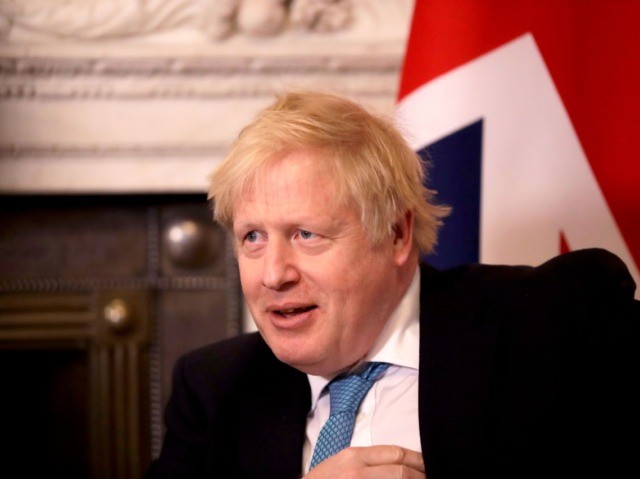The United Kingdom will not be able to leave the European Union in any meaningful sense if it wants a trade deal post-Brexit, and the EU will seek to punish the UK if it wishes to diverge from that, Brussels will say in negotiations in the coming months.
The European Union published its negotiating mandate Tuesday, paving the way for talks to begin the following Monday, but Boris Johnson’s government immediately hit back at the positions Brussels intends to take, pointing out the bloc intends to offer Britain worse terms than other trading partners across the globe. The bloc is making clear it expects the UK to continue to obey EU rules and norms in an attempt to prevent the post-Brexit nation from gaining a competitive advantage over member states still saddled with EU rules.
The European stance is so far away from understanding the point of Brexit — making the United Kingdom free to pursue its own ends — it renders itself pointless, UK negotiators said. Head of the British negotiation team David Frost said regulatory divergence is “the point of the whole [Brexit] project” and anything less “simply fails to see the point of what we are doing.”
Britain and Europe Will ‘Rip Each Other Apart’ in Brexit Trade Negotiations, Predicts Macron Ally https://t.co/5qIhn8dx9D
— Breitbart London (@BreitbartLondon) February 17, 2020
Britain’s state broadcaster the BBC, whose political editors enjoy good access to the government, reports the mood is that British negotiators could simply walk away from the table and put the UK onto a normal trade relationship if the European Union isn’t willing to accommodate a proper Brexit in a deal. The present negotiation period is time-limited, and due to run out at the end of December 2020, at which point the United Kingdom is due to properly leave the European Union, having taken the first step in March.
Even the Twitter account of the Prime Minister’s press office got involved, pointing out that while the EU’s negotiating document reasonably emphasises the bloc’s own legal autonomy, the failure to recognise that is something the United Kingdom desires for itself is a fundamental flaw and misses “the key point of Brexit”.
Noting the hypocrisy of the position by Brussels, the messages illustrate that the European Union has been happy to offer trade deals to other nations without insisting they follow European Union rules. The press office wrote:
The EU has respected the autonomy of other major economies around the world such as Canada and Japan when signing trade deals with them. We just want the same. We agree the UK’s trade with the EU is significant. The US’s is on the same scale – yet that did not stop the EU being willing to offer the US zero tariffs without the kind of level playing field commitments or the legal oversight they have put in today’s mandate.
The Daily Telegraph reports the remarks of a spokesman for the Prime Minister who put the British position simply: “The EU has respected the autonomy of other countries around the world in trade deals – we just want the same.”
Far-Leftist Corbyn Complains No-Deal Brexit Would Result in Trump Trade Deal https://t.co/i7koSymSs6
— Breitbart London (@BreitbartLondon) August 27, 2019
The European Union for their part insists because the United Kingdom is physically closer to the European Union, it must bow to European Union rules. Chief negotiator Michel Barnier said of the requirement Tuesday: “The UK will be the EU’s third-largest trading partner, ten times bigger than Canada. Canada is 5,000km away. It is clear the rules cannot be the same, it is logical, simple… the UK government and parliament agreed this less than six months ago.”
As well as rules preventing the United Kingdom setting its own laws and standards in the future, the EU will also insist it continues to have access to Britain’s rich fishing grounds. Regaining control of fishing quotas in UK waters, while seemingly a niche concern, was a major talking point during the referendum campaign and a long-running sore point in British-EU relations.
Two clear problems for European negotiators in the coming months are the apparent willingness of the British team to walk away from negotiations — not so much a problem with previous British administrations which seemed minded to accommodate the EU at all costs — and the threat a free Britain is perceived to pose to the European system. Perhaps the most vocal critic of Britain on the northern shores of Europe has been German Chancellor Angela Merkel, who has said several times the UK could become an “economic competitor at our door”.
The United Kingdom will publish its own negotiating positions on Thursday.
Farage: EU ‘Terrified’ of UK Being Competitor on Doorstep https://t.co/HxcvZ3ZI2u
— Breitbart London (@BreitbartLondon) February 3, 2020

COMMENTS
Please let us know if you're having issues with commenting.